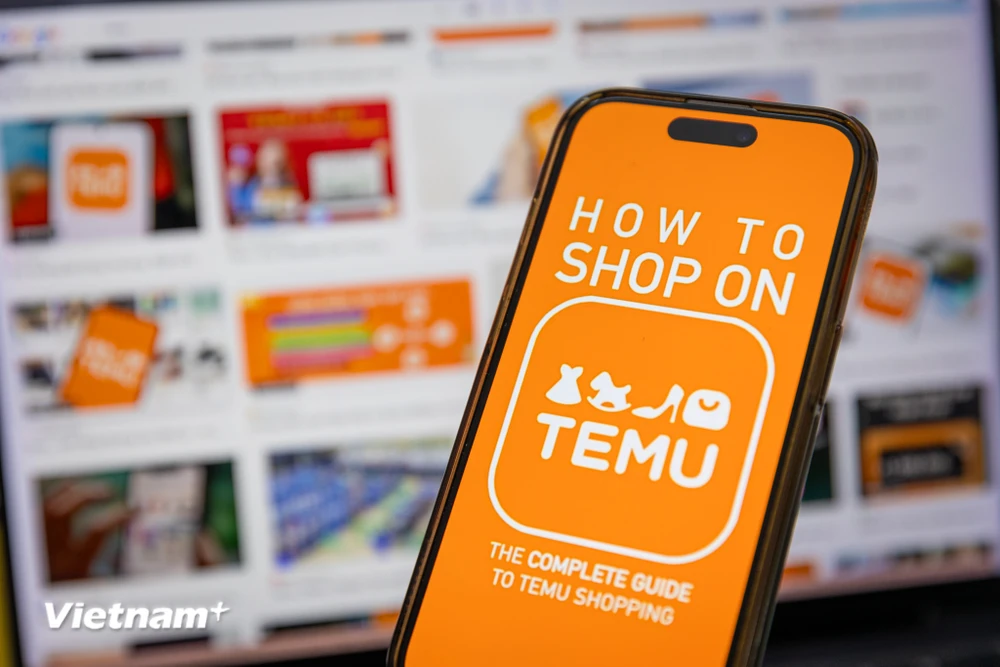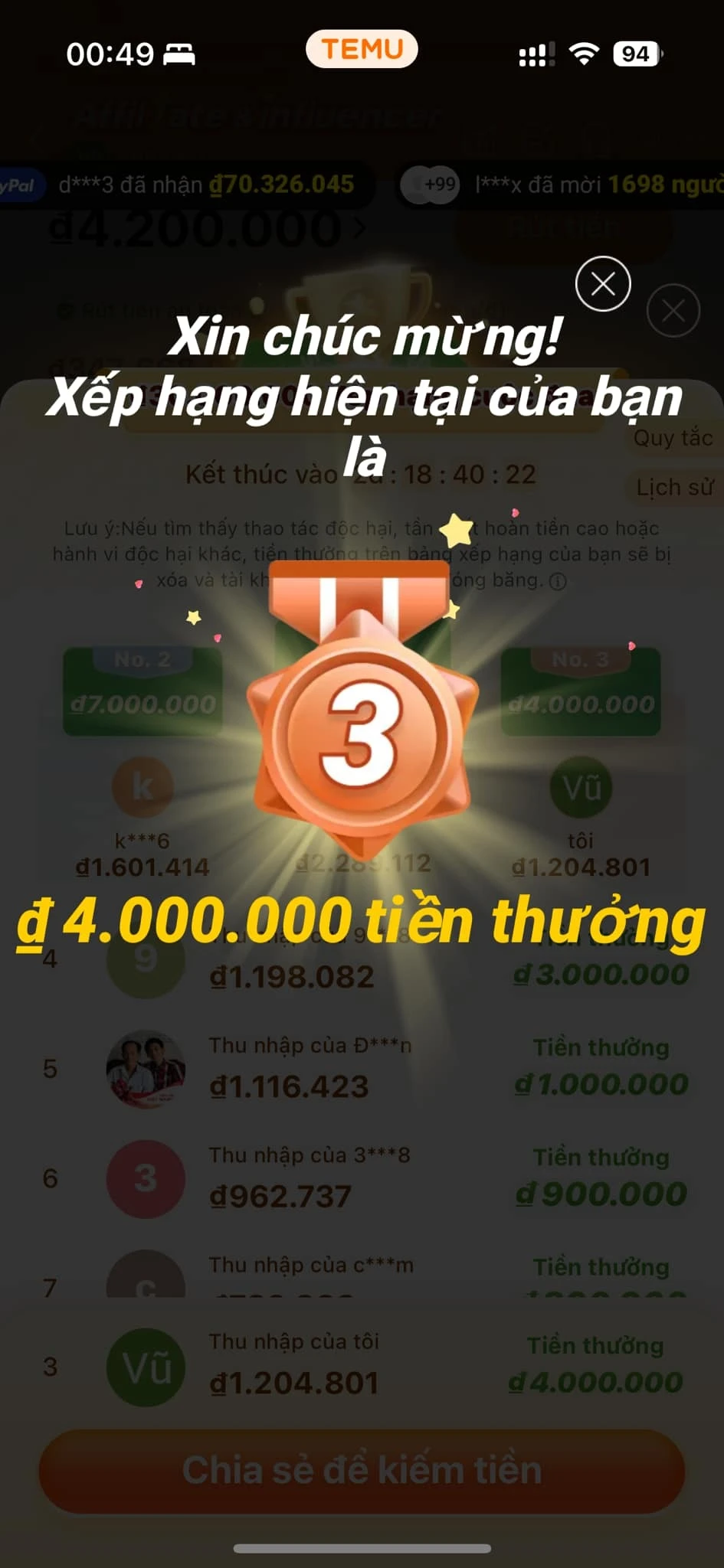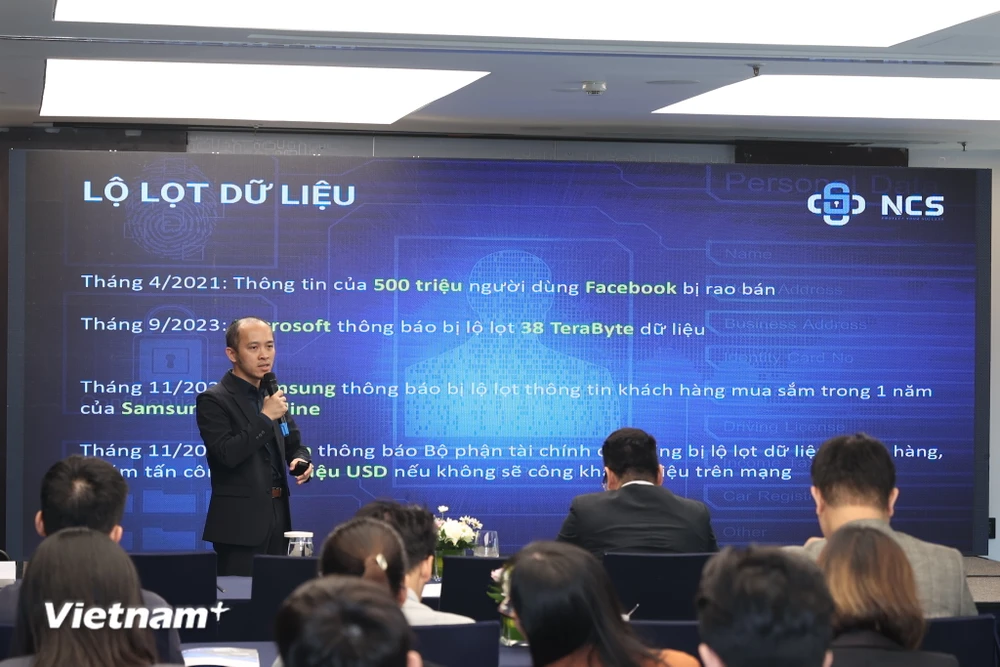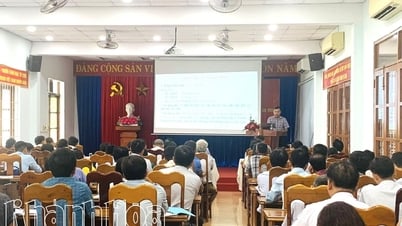According to security experts, users need to be careful before clicking on affiliate marketing links to prevent their accounts from being hijacked by criminals.

On October 22, Temu introduced to Vietnamese users an affiliate marketing program with an attractive commission policy and a simple registration process, attracting a large number of participants.
With a large bonus for each new user creating an account through a referral link, three times higher than Shopee, which has long been present in Vietnam, Temu quickly became a new choice for those who want to earn extra income from introducing products.
However, according to warnings from security experts, users need to be more careful before clicking on links.
"Fever" to earn hundreds of millions of dong from affiliate marketing
Temu applies a multi-level commission model, whereby the person who introduces a higher level receives 20% commission from the lower level member. The commission on each order ranges from 10% to 30%, surpassing competitors such as TikTok Shop or Shopee. This not only creates great attraction for users but also makes the Temu fever spread strongly in recent days on social networking platforms.

After registration, participants will receive a unique link to share with their friends, and when someone makes a purchase through that link, they will receive a commission of up to 20% for each successful payment order.
Commissions for each item sold are high, ranging from 10-30%. Specifically, commissions are calculated based on the actual payment of the transaction.
Specifically, for orders under 1.24 million VND, the referrer will receive 10%; for orders from 1.25-2.49 million VND, the referrer will receive 20% and for orders from 2.5 million VND or more, the referrer will receive 30%. With attractive commission policies, Temu quickly attracted the attention of many marketing partners in Vietnam.


Many people have earned hundreds of millions of dong from affiliate links from Temu. However, according to warnings from security experts, users need to be more careful before clicking on affiliate links.
Be careful before every click
Regarding the issue of network security from shared links and invitations to participate in new products, Mr. Vu Ngoc Son - Technology Director, Vietnam National Cyber Security Technology Joint Stock Company shared about potential risks.
According to Mr. Son, scammers often take advantage of hot issues and events to make profits. When a new product or new platform appears, the need to experience or sometimes just be curious about promotions and big commissions will be a great attraction for users.
Taking advantage of this, scammers can carry out some fraudulent acts such as creating links with fake domain names or fake interfaces with new products, sending users attractive welcome messages, luring users to provide sensitive information such as login names, passwords, or credit card information. According to Mr. Son, once users provide information, hackers can use it to break into accounts or carry out financial fraud.

Scammers can also ask victims to install apps via shared links, which then lead users to unofficial marketplaces, install malware, and take control of the user's phone. From there, they can silently collect information, control the phone, steal accounts, money, and even encrypt data for ransom.
Bad guys can also invite investments and import goods to enjoy high commissions, which are actually scams or non-existent programs, luring victims to transfer money and then cut off contact.
To prevent this, Mr. Vu Ngoc Son recommends that users should be more vigilant by checking the legitimacy of the link. Before clicking on any link, check the source and verify whether the link is from a reliable source.
Users also need to install antivirus software and other security tools to protect their devices from malware.
Expert Vu Ngoc Son also emphasized that users should never provide personal or financial information, especially credit card information, through unclear links or unsecured websites. Users also need to be vigilant and avoid cyber security risks from inviting links or new technology products./.
Source: https://www.vietnamplus.vn/nguy-co-tu-cac-lien-ket-chia-se-va-loi-moi-tham-gia-vao-cac-san-pham-moi-post987467.vnp



![[Photo] Close-up of modernized Thu Thiem, connecting new life with District 1](https://vphoto.vietnam.vn/thumb/1200x675/vietnam/resource/IMAGE/2025/6/24/d360fb27c6924b0087bf4f288c24b2f2)
![[Photo] The 9th Party Congress of the National Political Publishing House Truth](https://vphoto.vietnam.vn/thumb/1200x675/vietnam/resource/IMAGE/2025/6/24/ade0561f18954dd1a6a491bdadfa84f1)






























































































Comment (0)